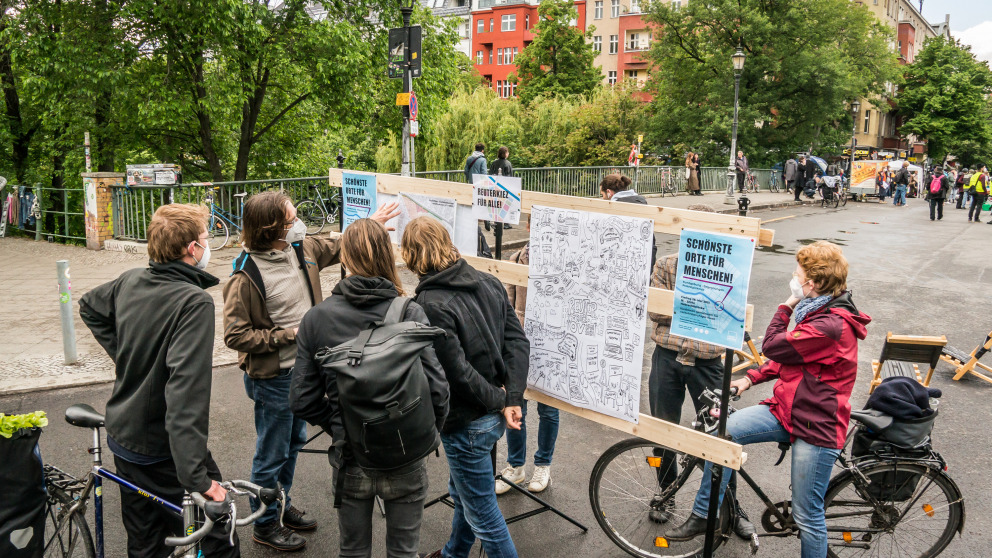Civil Society Engagement as a Driver of Urban Transformation
01.07.2024
Cities will need to change if we are to secure a sustainable future. Many people in Berlin have recognized this and cititzen-led initiatives have played a crucial role in driving transformations in recent years. This engagement strengthens resilience and ensures that communities are better equipped to tackle future challenges. But more can be done to involve different communities and improve cooperation with the city’s political institutions and policymakers.

"We investigated how civic engagement affects the resilience of urban communities. By this, we mean the capacity of a community to thrive in times of change and uncertainty. Our research focused on a specific field of civic engagement, namely initiatives for so-called Kiezblocks – an urban planning concept that seeks to improve liveability in residential areas by prohibiting through-traffic," explains Nicolina Kirby (RIFS), lead author of the study. The research aimed at identifying the factors that strengthen resilience.
Members frequently better educated and more affluent
The research team conducted an online survey among the members of 64 Berlin Kiezblock initiatives. 81 participants completed the questionnaire. In addition to this, the researchers interviewed 13 members of local authorities and Kiezblock initiatives. The survey and interviews focused on both individual dimensions of resilience, such as the coping, adaptive and transformative capacities of individuals, as well as aspects of social resilience, such as the composition of the community, the strength of its networks, and its social mechanisms.
The researchers found that the members of the Kiezblock initiatives surveyed are not representative of Berlin or Germany. They are disproportionately academically educated, slightly wealthier, less (ethnically) diverse and live in larger households than the average Berliner. Most respondents are well connected in their neighborhood and find it relatively easy to build a rapport with others. 42.5 percent of respondents describe their neighborhood as a community, and 78 percent say they would like to continue living in their neighbourhood because they feel connected to the people there. According to the authors, this strong bond strengthens their resilience and ability to overcome future challenges.
Bottom-up and top-down: both approaches needed
The Kiezblock initiatives surveyed are citizen-led, "bottom-up" initiatives aimed at bringing about change by engaging with policymakers and local authorities. The authors suggest that these should be complemented by "top-down" approaches in order to achieve a broader reach within communities. Co-creative or collaborative appraoches, they argue, could counteract the power inequalities at play in bottom-up processes and empower more citizens to participate in and shape the mobility transition.
Overall, the community of Kiezblock initiatives has proved highly resilient, the authors conclude. "The members feel that they are contributing to the greater good and the initiatives strengthen their sense of social connection. In the long term, however, it is important for the resilience of the community that government actors constructively engage with the demands and recommendations of initiatives," says Nicolina Kirby. So far, this is only partially the case: Some of the interviewees reported that their initiatives enjoyed the active support of local authorities, others had the impression that authorities had little interest in implementing the Kiezblock concept.
Nicolina Kirby, Dorota Stasiak, Dirk von Schneidemesser, Community resilience through bottom–up participation: when civil society drives urban transformation processes, Community Development Journal, 2024;, bsae031, https://doi.org/10.1093/cdj/bsae031
Contact

